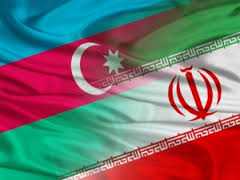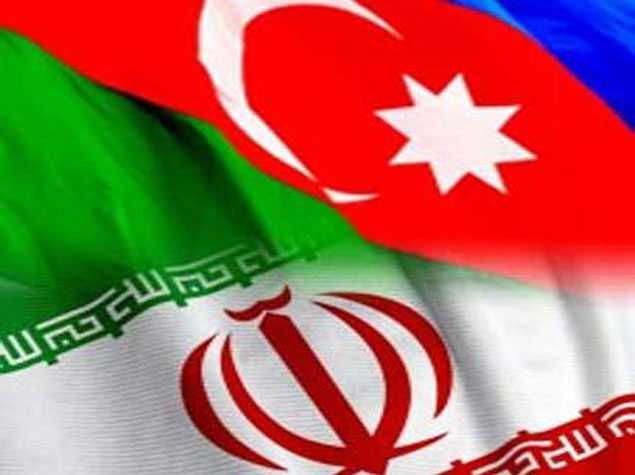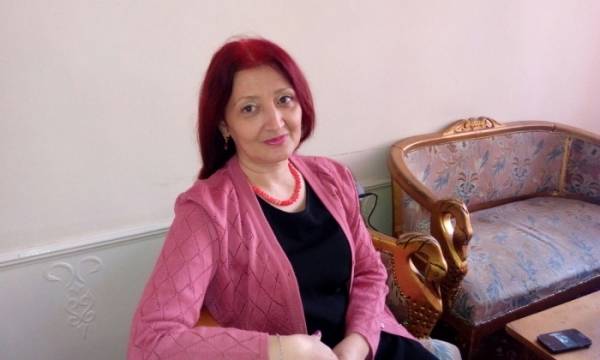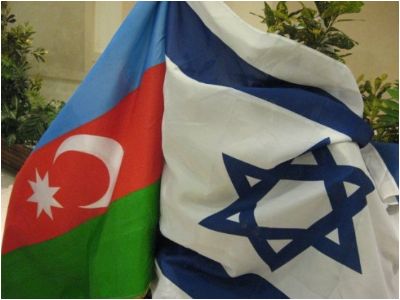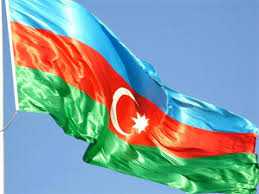
Gulnara Inandzh, Director of International online information-analytical center “Etnoglobus”, the editor of the Russian section of the US-Turkish resource tirkishnews.com, representative of “Gumilev” center in Azerbaijan, [email protected]
Collapse of the Soviet Union, then start of globalization has created a new environment for the realization Ethnopsychological self-identy.
Soviet policies aimed at developing the conscience of the Soviet man, erasing ethnicity and religion, suddenly painted in bright colors the most radical of these factors of identity.
During first years of the new independent states, in Azerbaijan, political nationalism ran in parallel with ethnic nationalism, including with numerous, mainly Turkic ethnic groups. With the strengthening of state nationalism of Azerbaijani Turks declined in parallel reducing ethnic nationalism which is not the major ethnic groups living in the country.
However, the ethnic self-identity of the Azerbaijani citizens calling themselves as “Azerbaijanis” and citizens calling themselves as “Turks”, ” Lezghian”, “Avars”, “Talish” runs parallel. But in the mass consciousness there is no aggression and absolutism in self-identity. But also an understanding of the definition of “Azeri” as a political nation or state is too weak.
For example, it is difficult and sometimes impossible to explain the Azerbaijani Turks, still retained the format of the Soviet definition of “Azeri” that Lezghians Talish and Jew living in Azerbaijan, are also “Azeri”. Also jealous Lezghians Talish and Avar does not want to plead Azerbaijani as again under Soviet format believes that this is definition element, diverting his identity by the wayside.
Such an approach to the title “Azerbaijani” takes place among ethnic groups that do not have their own state. Deep in the subconscious behind it there is self-preservation instinct on the background of globalization, when the process of integration and merger of cultural values.
The so-called “Arab Spring” again exposed ethnic and religious feelings. Studies, as well as own fieldwork shows that in this international call, in Azerbaijan religious expression and ethnic identity prevails over, sometimes mixing them.
But the rise of ethnic consciousness is based on mythologizing history, historical figures searches among their ethnic group. (1)
Azerbaijan, participating in transnational and regional projects, accelerates the process of engaging in the process of globalization and its reverse side – localization. Localization develops regional and local identity. As a result of globalization, localization also acts as a catalyst of ethnic mobilization. (2)
The above identification format proposes a new way of thinking and identification – Eurasianism. This kind of format is new thinking for the Azerbaijani society. Part of the country is included in the European and Asian geographical space. One of the two villages located nearby according to this section may be both in Europe and Asia. What do they think of it? What continent do the residents of these villages belong to? They are likely to be called the name of his village, then their ethnicity, depending on where it is rural or political nation – Azerbaijani, then religious affiliation – Muslims. But they don’t care whether they are European or Asian.
Outside the country Azerbaijanis are considered as the eastern people, Muslims. And by presenting to our public consciousness a new format of thinking, we need to define and explain what the purpose of it is. If there is still a debate about ethnicity and political nation, those who do not want to consider himself a nation, and remains in its ethnic house, suggest a Eurasian identity.
Gumilev’s Eurasian idea was transferred to the political arena and has become a leading link in Russia’s foreign policy thus becoming virtually a new format for the unification of the Eurasian geography. That is, this is the idea of Eurasian identity manifested itself on the political plane. In such a case Eurasianism will be dictated from above, if the political authorities decide to join it. Dictated from above new factor of integration or association will not be framed as an ideological component, and would mean only to carry political- geographical name. It means that Azeri do not have to adapt to the new identity. In this case, the proposed policy of Eurasian idea does not compete or clash with ethnic and national identity, but it is the basis for cultural and economic integration.
With the growing economic and political status of Azerbaijan, national identity takes a new quality. Today being an Azerbaijani is prestigious, for example, equals with Europeanized Eastern man, a Muslim with a modern way of thinking. Azerbaijanis are now not only migrant workers but also employers. Azerbaijan already began to receive migrants from southern Russia, Asia and Iran. This is due to participation of Azerbaijan and the role of Azerbaijani business as an employer in the south of Russia.
Here it would be appropriate to consider the involvement of Azerbaijan in the economy of the south of Russia, which includes not only economic, but also cultural and social integration.
Economic and political development of Azerbaijan assigns it the role of the employer that changes the attitude towards the state and the people. Russia invited foreign private and public companies, including Azerbaijani investors to participate in the development of economy in southern Russia.
Southern borders of Russia, bordering with two regional states, Azerbaijan and Georgia, is a strategically important reference point of Russia. In order to establish peace in the south of the country, the federal center along with operational activities implement economic reforms, aimed at serving as establishment of new jobs, growth of social conditions of the population and reduction of migration.
But at the same time, given the desire of foreign powers to separate the south of the country, including the North Caucasus from Russia, the Kremlin approaches the foreign investors carefully, without allowing them into the regional economy.
In this case, absence of geopolitical ambitions in the North Caucasus and the reluctance to become an instrument of foreign games in the region, makes Azerbaijan successful and trusted source of investment in the economy of the south of Russia. Many factors contribute to this, including economic potential, similarity of mental traits, natural infrastructure, a large market, etc.
State border treaty, signed in 2010 between Baku and Moscow accompanied the opening of the North Caucasus economic fields for the Azerbaijani business.
In the summer of 2011 Deputy Prime Minister of Russia, the special representative of the President of Russia in the North Caucasus Federal District (North Caucasus Federal District ) Alexander Khloponin, with the delegation of heads of all the North Caucasian Republics came to Baku to discuss the subject. Immediately thereafter, the Minister of Economic Development of Azerbaijan Shahin Mustafayev visited seven republics of the North Caucasus and business forums and business meetings were held. (3)
Paying particular attention to economic cooperation with Azerbaijan, plenipotentiary representation of the Russian President in the North Caucasus Federal District creates a special council to supervise the execution of the decisions relating to the subjects of the federation in the region and also plans to open a representative office of North Caucasus Federal District in Azerbaijan.
According to the deputy envoy to North Caucasus Federal District Sergei Subbotin, “A task was put before North Caucasus Federal District leaders aiming at development of relations with Azerbaijan, and it is high time to control the effectiveness of these tasks. Effective solution of all tasks depends primarily on effective control. ” (4)
Participation of Azerbaijani business is particularly felt in Stavropol and Krasnodar regions of Russia. For example, in 2009, Azerbaijan won the 3rd place in terms of foreign trade with the Stavropol Territory – $ 123.3 million, which is 8.7 % of the total foreign trade turnover of the region, and trade with the Krasnodar Territory – $ 71.4 million.
In 2010 national company “Azersun Holding” put into operation a tea-packing factory in Belorechensk (Krasnodar region) with a total of more than $ 3 million. and started the construction of a cannery in the same amount. Totally the company has invested in the infrastructure of the Krasnodar Territory $ 22 million.
In September 2011 Azerbaijani company “Matanat – A” started construction of Materials Plant in Uspensky district of Krasnodar region ( project worth of 30 million euros).
In early June of this year in Volgograd during the fourth forum “Russia -Azerbaijan: interregional dialogue 2013” business exhibition was organized where the Russian regions and Azerbaijan demonstrated products of industrial and processing enterprises. The exhibition was attended by more than 40 producers in the region , including plants such as “Volgogradneftemash “, ” VZBT “, ” united Tsarician manufactory “, ” Volzhsky Abrasive Plant ,” ” Kamyshinsky textiles “, “Brewers”, “Config”, “Gardens Pridonya” , “King – product” and other productions.
According to the Minister of Economy, Foreign Economic Relations and Investment Elvira Lagutina, Azerbaijan today is one of the largest customers of the Volgograd region. Currently, the region has 10 enterprises with the participation of the Azerbaijani capital, trade is growing with the republic – by the end of 2012 it exceeded $ 140 million.
– Azerbaijan is interested in Volgograd APK, bus manufacturing, chemical products and other enterprises. Besides, there are also prospects in the implementation of joint investment projects, including the construction of hotels and the creation of platforms in the field of agricultural processing. Azerbaijan also purchased Drilling Equipment Plant in Volgograd. (5 )
Federal center is very interested in the development of the region and creates maximum conditions for investment.
“The district used the most advanced tools to stimulate investment and development – government guarantees and investment insurance that does not exist in any other region of Russia. North Caucasus Development Corporation was established” – said Russian presidential representative in the North Caucasus Federal District Alexander Khloponin, inviting Azerbaijani investors to the region. (6 )
We also should note the need to establish a free trade zone in the region, which should abolish movement between Azerbaijan and Russia, to promote mutually beneficial trade and rapprochement and closer ties of the two countries, to attract Azerbaijani investors. This should also be accompanied by the creation of conditions for labor migration between Azerbaijan and in southern regions of Russia.
Russian side is trying to bring economic relations between Azerbaijan and the North Caucasus Federal District from framework of trade relations into the direction of the development of modern industry and technology and innovation. It is noteworthy that as evidenced above examples, the participation of Azerbaijani business in southern Russia is seriously interested in Moscow.
(Speech at the conference titled “Alternatives for regional developmen” The Shabunin readings, 11-12 October 2013, Volgograd)

